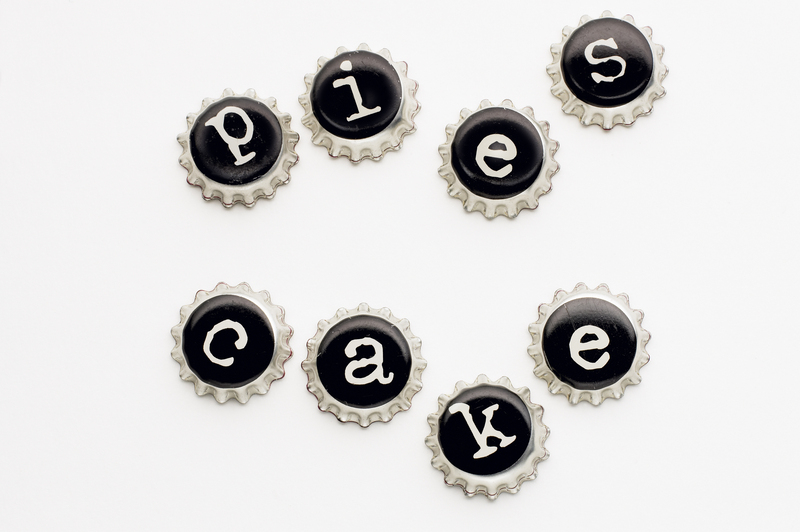Transformative Ways to Reduce Home Waste: A Comprehensive Guide
In an era where waste reduction and environmental sustainability are crucial, finding effective and transformative methods to minimize household waste is an important mission for families around the globe. Not only does it benefit the planet, but it also simplifies your life, saves money, and creates a healthier living space. This comprehensive guide will explore actionable and creative ways to reduce garbage and waste at home while transforming your domestic habits for long-lasting impact.

Why Does Minimizing Home Waste Matter?
Every day, the average household generates a significant amount of waste--much of it ending up in landfills, where it emits greenhouse gases and pollutes natural resources. Reducing trash at the source is far more effective than dealing with it afterward. When we adopt eco-friendly habits, we make a profound contribution to sustainability, conserve resources, cut down on unnecessary expenses, and often inspire others to do the same.
1. Reimagine Your Shopping Habits
Opt for Reusable Over Disposable
- Bring your own bags, containers, and bottles when shopping. Reusable shopping bags, produce bags, and water bottles drastically limit single-use plastic waste.
- Choose products with minimal or recyclable packaging to cut down on excess packaging waste.
Buy in Bulk and Plan Ahead
- Buying in bulk not only saves money, it also significantly reduces the packaging waste associated with individually wrapped items.
- Plan your meals before grocery shopping. This helps you avoid impulse purchases and minimizes food spoilage.
2. Innovate with Kitchen Waste Reduction
Composting: Nature's Recycling Process
Composting is a transformative way to reduce food scraps and organic waste. Instead of sending fruit peels, coffee grounds, and eggshells to landfill, convert them into nutrient-rich compost for your garden.
- Set up a dedicated bin for collecting compostables.
- If you lack a yard, consider a vermicompost bin or community composting programs.
- Use the finished compost to enrich your houseplants or flower beds.
Get Creative with Leftovers
- Transform odds and ends into soups, casseroles, or stir-fries rather than throwing them out.
- Learn to store leftovers properly and prioritize eating perishable items first.
- Label containers in the fridge with dates to avoid accidental spoilage.
Choose Reusable Food Storage
- Swap single-use plastic wraps and bags for reusable containers, beeswax wraps, or silicone lids.
- Invest in glass or stainless steel containers for long-term use.
3. Upcycle and Repurpose Household Items
Give Old Items New Life
Before tossing something away, ask: Can it be reused or repurposed? This question leads to transformative home waste reduction strategies.
- Turn old jars into storage containers, candle holders, or planters.
- Use worn-out clothes as cleaning rags or craft materials.
- Repurpose larger containers for organizing toys, tools, or pantry items.
DIY Projects and Upcycling Ideas
- Refinish old furniture instead of discarding it.
- Create homemade art or decor from rescued or recycled materials.
- Host swap events with friends to exchange clothing, books, or household goods.
4. Recycle Responsibly
Understand Local Recycling Rules
One of the most effective ways to reduce waste at home is to participate fully in your community's recycling program. However, contamination is a major issue. Ensure you:
- Know what materials are accepted in your area.
- Rinse containers to prevent food residue from spoiling recyclables.
- Avoid placing hazardous or non-recyclable items (like plastic bags or electronics) in recycling bins.
Proper Disposal of Special Items
- Find designated drop-off locations for e-waste, batteries, and lightbulbs.
- Use community hazardous waste days for proper disposal of chemicals and paints.
5. Make Cleaning Green and Waste-Free
Adopt Zero-Waste Cleaning Routines
- Use rags made from old textiles instead of single-use paper towels.
- Choose cleaning products in refillable containers or make your own natural cleaners.
- Opt for concentrated cleaning solutions to minimize packaging.
Buy in Bulk or Refill
- Investigate local refill stations for dish soap, laundry detergent, and other cleaners.
- Purchase bulk-sized items to reduce packaging waste.
6. Reduce Paper and Mail Waste
Switch to Digital
- Opt out of junk mail and catalogs by registering with national do-not-mail lists.
- Switch to paperless billing and digital receipts whenever possible.
- Save documents, notes, and recipes on digital devices rather than printing.
Recycle and Reuse Paper
- Designate a spot for scrap paper and use it for notes or lists before recycling.
- Buy recycled-content paper products.
7. Invest in Durable, Multi-Use Products
- Seek out high-quality household goods that are designed to last.
- Repair or refurbish appliances and electronics whenever possible instead of replacing.
- Choose versatile kitchenware (like cast-iron pans or multi-cookers) that can serve a range of cooking needs.
8. Rethink Personal Care and Bathroom Waste
Embrace Sustainable Swaps
- Switch from disposable razors to reusable options.
- Try solid shampoo bars, refillable deodorant, and bamboo toothbrushes.
- Opt for reusable makeup remover pads or menstrual cups.
Buy in Bulk or Refill
- Select personal care products available in bulk or at refill stations.
- Choose products packaged in glass or aluminum, which are easier to recycle than plastic.
9. Donate, Sell, or Share Unneeded Items
- Donate gently used items like clothes, books, toys, and electronics to charities.
- Use online marketplaces to pass on furniture, appliances, or home goods instead of throwing them out.
- Set up a free "giveaway" box for neighbors or at community centers.
10. Educate, Inspire, and Involve Others
Lead by Example
- Talk openly with friends and family about your progress and favorite waste-reduction tips.
- Encourage participation in community clean-up days, recycling drives, or environmental workshops.
- Share resources, local refill locations, or guides about transformative ways to reduce home waste.
Engage Children in the Journey
- Involve kids in composting, recycling, and upcycling projects.
- Read books and watch documentaries on our environmental impact.
- Discuss reasons behind waste reduction in age-appropriate ways.
Additional Transformative Waste Reduction Techniques
- Meal Plan and Batch Cook: Set aside a little time each week to plan meals and prepare food in batches to cut food waste and reduce reliance on take-out.
- Install a Water Filter: Use filtered tap water with reusable bottles rather than purchasing bottled water.
- Utilize Smart Technology: Track expiration dates or automate shopping lists to prevent overbuying.
- Start a Garden: Grow your own herbs or vegetables using composted soil and reduce the need for packaged produce.
- Host Zero-Waste Gatherings: Encourage guests to bring their own plates and utensils; focus on less-packaged food and drink.

Measuring the Impact: Track and Celebrate Progress
Document your family's journey towards reducing household waste. Use charts or journals to track what you've diverted from the landfill each month. Noting your progress can keep motivation high and provide valuable insights about areas for further improvement. Share your statistics with others to inspire continued collective action.
Conclusion: Small Steps, Major Transformations
Every effort, no matter how small, sends ripples through our communities and environment. By embracing a mix of practical, creative, and transformative ways to reduce home waste, you can become part of a global movement towards sustainability. Start today, involve your loved ones, and transform your household into a model for positive change.
Ready to begin? Choose two or three strategies from the list above and implement them this week. Notice the difference not just in your waste bin, but in your mindset, wallet, and the world around you.
Together, we can turn the tide on household waste and pave the way for a cleaner, greener future!